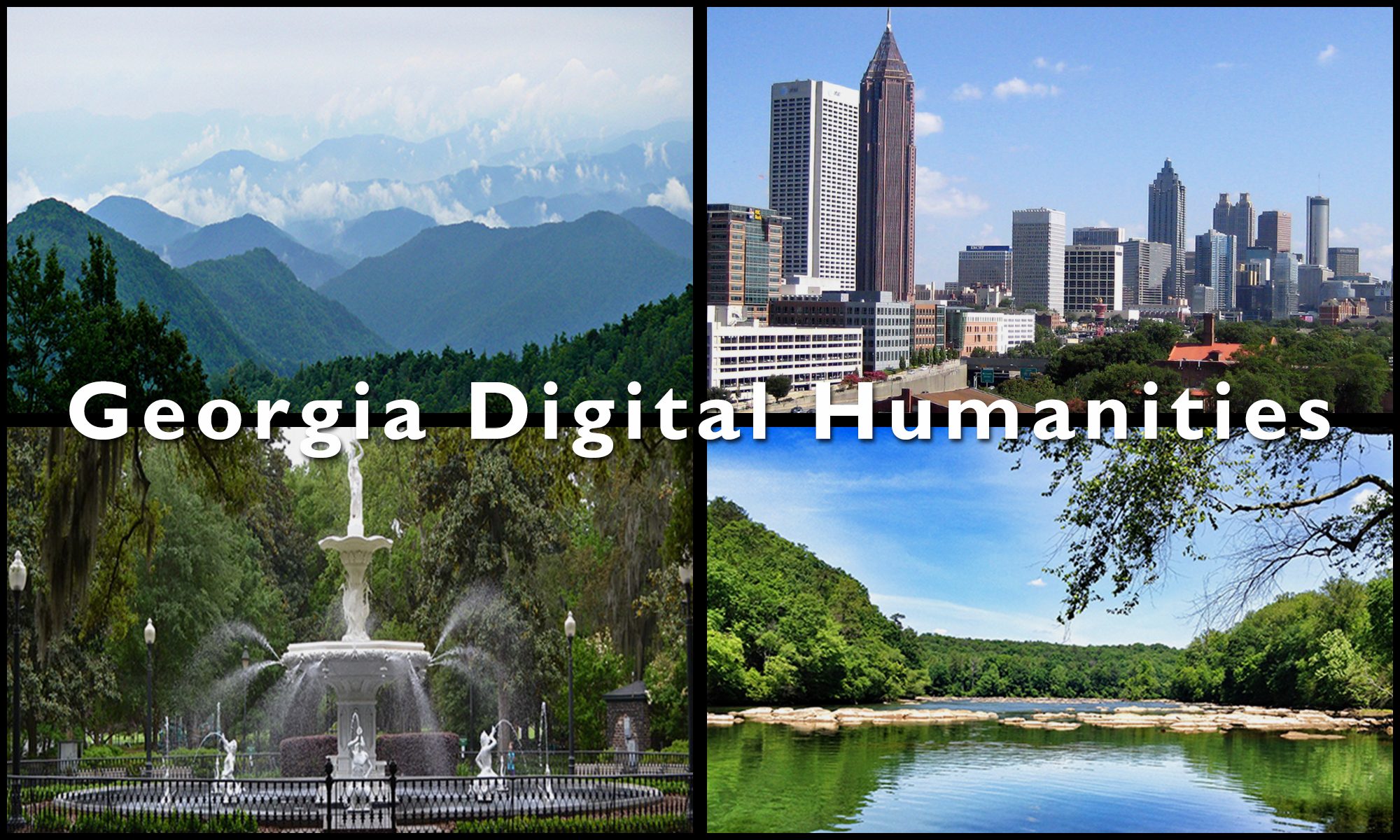This calendar includes workshops and events that might be of interest to the digital humanities community in Georgia.
Topics covered:
- Importing data
- Navigating the Tableau interface
- Creating simple visualizations (Worksheets, dashboards and stories)
- Saving, publishing and sharing visualizations
In the last decade, the use of software tools for data analysis and data visualization has proliferated in the humanities. The availability of digitized material, increasing computational power, and analytical techniques adopted from network science, geospatial analysis, and natural language processing have inspired new ways to interrogate cultural heritage data. But those tools, reliant on statistical modeling, also limit the questions we can ask and the meaning we discover. In order to uncover significance in materials that have passed through many hands, and stories that have been telegraphed by different voices inflected with opinion, argument, and perspective, we need tools that support human-scale exploration of complex systems. The research process requires “thinking through data,” which is how we describe the reflective, slow collecting and editing of information, as distinct from the quick, mechanistic, algorithmic approach to data processing. This talk will demonstrate how the requirements of humanistic inquiry are encoded in tools developed at Humanities + Design and why, in this age of artificial intelligence, it is so important to capture the intellectual work of data modeling.
Nicole Coleman is Digital Research Architect for the Stanford University Libraries and consultant for the Stanford University Press’s Digital Publications project. Nicole is also co-founder and Research Director for Humanities + Design, a research lab at Stanford’s Center for Spatial and Textual Analysis dedicated to encoding humanistic method into open source software for research. She is currently developing an initiative to make library collections more useful to researchers through applications of artificial intelligence.
To attend, please RSVP here.
This hands-on workshop will introduce network thinking for historical projects concerned with people, places, and works. We will use pen and paper as well as a suite of software tools developed at the Humanities + Design research lab at the Center for Spatial and Textual Analysis. The room is equipped with computers, but you may want to bring your own laptop.
Nicole Coleman is Digital Research Architect for the Stanford University Libraries and consultant for the Stanford University Press’s Digital Publications project. Nicole is also co-founder and Research Director for Humanities + Design, a research lab at Stanford’s Center for Spatial and Textual Analysis dedicated to encoding humanistic method into open source software for research. She is currently developing an initiative to make library collections more useful to researchers through applications of artificial intelligence.
Does part of your research include site specific locations? Would an interactive web map that includes photos of these locations help contextualize your research? Or are you interested in incorporating mapping into your class assignments? If so, this workshop will teach you how to create online maps that can display point locations with pop up text and images. You will learn how to use the free version of ArcGIS Online and Google Sheets to easily create interactive web maps. You will also learn how to embed these interactive maps into blogging and website platforms such as Edublogs.
Join us for a conversation with former DILAC Digital Humanities Summer Institute attendees Matt Dischinger, Andrew Eichel, Kate Holterhoff, and Sarah Lozier-Laiola. They will discuss their experiences at DHSI with the hopes that others will take advantage of the opportunity this year.
Brandon Walsh of UVA’s Scholars Lab joins us to talk about graduate education in DH and his experiences in the field.
Miriam Posner will be speaking with us over Skype about her experiences as a leading light in the DH landscape.
Melissa Dinsman, author of the LARB series on DH, will be joining us via Skype to talk about DH within the public context.
Co-sponsored by the Emory Center for Digital Scholarship and the Disability Studies Initiative, the Digital Publishing in the Humanities initiative presents “Cultural Accessibility: Digital Media, Disability Cultures, and Academic Responsibility.”
The rhetoric of digital media is usually one of increased access, opportunity, or transparency. However, digital media can not only open, but close off access. In this presentation, Dr. Elizabeth Ellcessor explores the ways in which digital technologies have both produced and prevented access to culture, information, and citizenship for people with disabilities. She illustrates how disabled people have innovated in the face of these barriers, and suggests that these workarounds and culturally specific media productions hold value for designing better media and technologies that attend to diverse access conditions rather than taking for granted normative bodies or practices. Finally, she turns a critical lens to the growing reliance on digital media in the management of the university, proposing that attention to access needs become one of our responsibilities as scholars and teachers.
Elizabeth Ellcessor is assistant professor in media studies at the University of Virginia. She is the author of Restricted Access: Media, Disability, and the Politics of Participation (NYU Press, 2016), and co-editor of Disability Media Studies (NYU Press, 2016). Her work focuses on media access, disability and embodied difference, and the public.
Join us for a conversation with Tracy Fullerton, Director of the Game Innovation Lab at USC and creator of the Walden game, which recently won Game of the Year and Most Significant Impact at Games for Change. She will talk about her experience making an “academic” game, and her time as Director of the USC Games Program.
